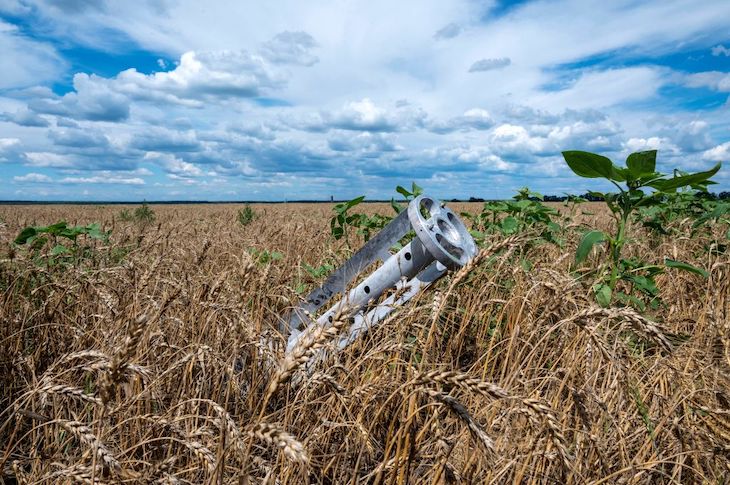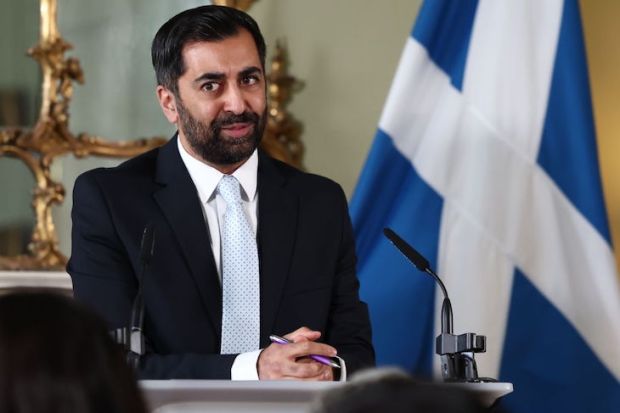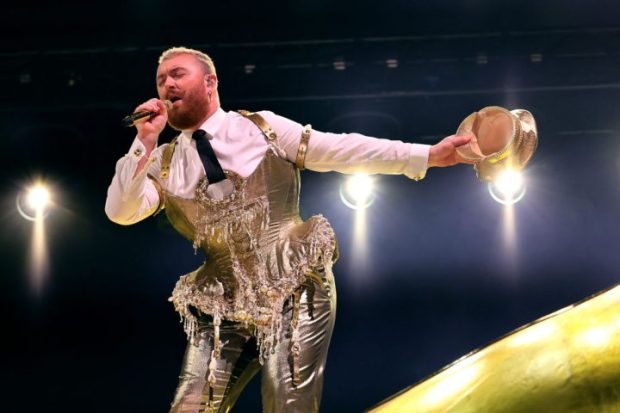Poland has said it will no longer supply Ukraine with weapons, that it may cut aid to refugees and that it could restrict the import of a larger number of agricultural products. Polish president Andrzej Duda has compared Ukraine to a ‘drowning man’ capable of dragging his country ‘into the depths’. A month ahead of the Polish elections, it’s worrying language for Ukraine from a country that has, for so much of the war, been one of its staunchest allies. Ukraine needs Poland more than Poland needs Ukraine.
Since the onset of the full-scale war, Poland has spent more than £2.5 billion to support Ukraine with weapons and financial aid, often prioritising Ukraine’s interests over its own. It was anticipated that Warsaw’s policy towards Ukraine might cool as the war dragged on. But this course correction turned out to be too sharp.
Ukraine keeps the Russian army away from the Polish borders, and it’s hard for Warsaw to forget it
It began when Polish farmers protested the opening of the European market to Ukrainian agricultural products. The influx of cheap Ukrainian grain, oil and corn (vital for the wartime economy) caused Polish prices to plummet, hitting farmers’ livelihoods. Poland is home to more than a million farmers, constituting a significant electoral force for the ruling Law and Justice party. With parliamentary elections scheduled for 15 October, the party is going for populist statements in pursuit of the farmers’ votes. But not only theirs: some Poles are dissatisfied with how much money is spent on supporting Ukraine and almost a million refugees who receive the same social benefits and payments as they do. As political parties fight for votes, there always will be quite a few slogans that would not be heard otherwise.
The EU turned out not to be ready for such a heavyweight agricultural player like Ukraine. Poland, Hungary, Slovakia and Bulgaria introduced a ban on the sale of Ukrainian agricultural products in their countries in May – a step they should not have taken without the approval of the European Commission. At the time, the Ukrainian authorities refrained from making their disappointment public and focused on solving the problem through the mediation of the European Commission. Kyiv agreed to the extension of the ban until mid-September but said this would be the last concession.
Instead, five countries extended the ban at least until the end of the year. Poland went all-in, declaring that it would not open its market to Ukrainian agricultural products, even if the European Commission decided otherwise. This tears up not only European laws but also contravenes the ‘association agreement’ between Ukraine and the EU. This time, Kyiv could not stay silent. Ukraine was losing about £150 million per month because of the ban – and will lose about £500 million more by the end of the year. Kyiv subsequently filed an appeal at the World Trade Organization and warned that if countries do not end their embargo on Ukrainian products, it will limit imports in response.
Volodymyr Zelensky added fuel to the fire during his speech to the United Nations general assembly on Wednesday, saying ‘it is alarming to see how some in Europe, some of our friends in Europe, play out solidarity in a political theatre – making a thriller from the grain.’ He added: ‘They may seem to play their own role but in fact, they are helping set the stage for a Moscow actor.’
That didn’t go down well with those allies. Ukraine’s ambassador to Poland was urgently summoned to Warsaw for explanation. A Zelensky-Duda meeting in New York was cancelled due to the Polish president’s ‘tight schedule’. Mateusz Morawiecki, the Polish Prime Minister, announced that his country will no longer supply Ukraine with homemade weapons ‘because we are now arming Poland’. Warsaw also implied it may cut off aid for Ukrainian refugees next year.
Importantly, Poland isn’t going soft on Russia – or the war. Jaroslaw Kaczynski, head of the Law and Justice party, said that despite the dispute with Ukraine regarding the export of agricultural products, Warsaw will continue to support Kyiv ‘until victory’.
At the time of writing, the agriculture ministers of both countries had agreed to find a solution that takes into account each of their interests. Poland has received Ukraine’s export plan and will provide its input. Additional negotiations will soon happen; there is hope that cooler heads will prevail, leading to a resolution. After all, Ukraine keeps the Russian army away from the Polish borders, and it’s hard for Warsaw to forget it.
This article originally appeared in the weekly Ukraine in Focus newsletter. Sign up here.
Got something to add? Join the discussion and comment below.
Get 10 issues for just $10
Subscribe to The Spectator Australia today for the next 10 magazine issues, plus full online access, for just $10.



















Comments
Don't miss out
Join the conversation with other Spectator Australia readers. Subscribe to leave a comment.
SUBSCRIBEAlready a subscriber? Log in